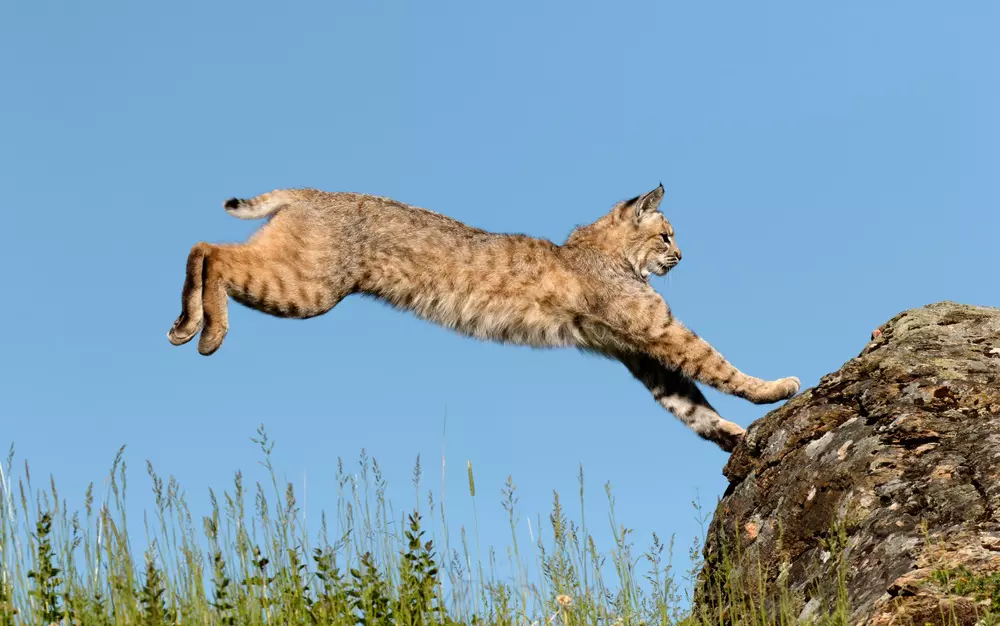
Former USFWS director guts phony arguments of 127 opponents
- Wayne Pacelle
You can listen to this article here:
Among the most influential voices urging a “Yes” vote on Prop 127 in Colorado is Dan Ashe. He is a lifelong hunter, and most importantly in a debate that deals with wildlife policy, he is a former director of the U.S. Fish and Wildlife Service (2010-2016) and a career wildlife professional who was director of the nation’s 573-unit national wildlife refuge system — the most extensive network of protected lands anywhere in the world.
He endorsed the ballot measure in September with a column that’s been widely published in the state.
This week, he engaged in a conversation with Animal Wellness Podcast host Joseph Grove about Prop 127, and he addresses arguments from critics of the ballot measure that Mr. Grove tossed his way. It’s an important conversation for anyone interested in wildlife policy in America. You can listen to the full episode here.
As a top wildlife management professional, Dan is in strong company in endorsing the measure. Twenty-two other wildlife scientists signed a letter underscoring that lions self-regulate their populations and that they bring beneficial services, including acting as a bulwark against the deadly and incurable Chronic Wasting Disease now afflicting deer and elk in Colorado
USDA infectious disease specialist and veterinarian Jim Keen, DVM, PhD, has written two reports relevant to the campaign:
- The first one reviews the literature to underscore that lion populations are self-regulating and that trophy hunting may change the social and age structure of populations and create more human-lion conflicts, and
- The second report underscores that mountain lions selectively remove deer and elk infected with Chronic Wasting Disease (CWD). Where there are lions, there is little or no CWD in cervids; where there are no lions CWD is spreading with deadly effects.
Colonel Tom Pool, DVM, MPH, and former commander of the U.S. Army Veterinary Command, has publicly stated “we need every mountain lion there is to fight this deadly disease and to allow Colorado to maintain viable deer and elk herds in the decades ahead.”
Add in a letter from 119 Colorado veterinarians who note that hounding with tracking equipment and trapping with bait violates animal welfare science. “Hound hunting involves packs of dogs chasing mountain lions and bobcats over long distances, causing severe stress, exhaustion, and injuries for both the wild animals and the dogs involved,” said Dr. Christine Capaldo, DVM, of the Animal Hospital of Telluride, one of the signatories.
Journalist Ted Williams, one of the nation’s most decorated outdoors writers and a former state fish and game employee, has written in favor of Prop 127 several times, including a column detailing how California has maintained a stable population of lions in the absence of any trophy hunting of lions for more than a half century.
Even though California has six times as many people as Colorado, it killed one-sixth of the number of lions in damage control operations. (Colorado kills about 60 lions a year for conflict management — that mortality is in addition to the 500 lions shot by trophy hunters — while California kills an average of 9 a year.)
Today, take your time to further educate yourself on the issues. These wildlife professionals, infectious disease experts, and veterinarians have valuable things to say about our treatment of wildlife. The lessons apply everywhere even as one state makes a consequential judgment about the future of wildlife in the national election upon us.
And please share some of this content with Colorado voters you know. You might start by sending the Animal Wellness Podcast featuring the interview with Dan Ashe.
Mountain lions and bobcats deserve protection from cruelty in their own right. But when there is a keener understanding of the ecosystem services they deliver — balancing nature and bringing hundreds of millions in economic value to states — you’ll see the multi-dimensional case for ending American trophy hunting and commercial trapping of lions and bobcats.
Dear reader: If you support substantive policy work to protect animals, please consider donating to Animal Wellness Action today. You can give any amount one time, or make it a monthly gift, as many of our supporters do. Thank you for helping us fight for all animals. Please go here to make your contribution.